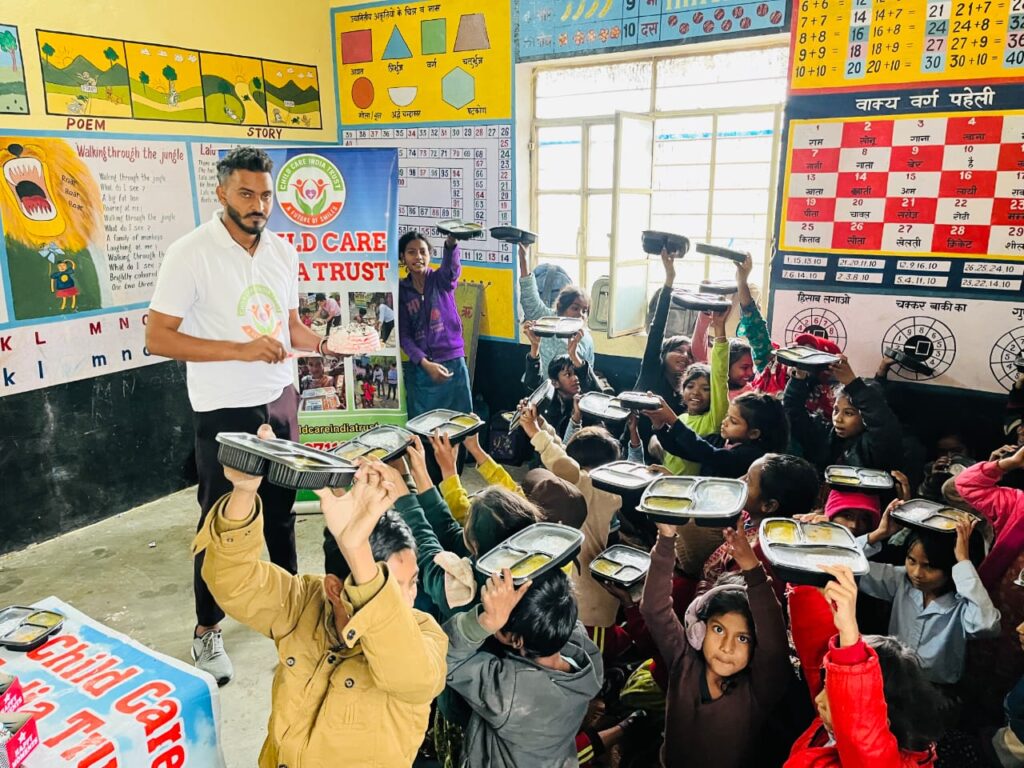The Basic Beliefs in Child Development
Introduction to Child Development
Child development is an essential field that helps us understand how children grow, learn, and interact with their surroundings. From infancy through adolescence, children undergo significant changes, making the study of child development vital for both parents and professionals. Understanding the basic beliefs in child development can equip parents and caregivers with the tools needed to support children’s growth and ensure they reach their full potential.
Understanding the Importance of Early Childhood
The early years of life are often referred to as the foundation for future development. It’s during these early stages that the brain is most adaptable and capable of forming neural connections that will influence a child’s cognitive, emotional, and physical growth. A child’s experiences in these formative years play a crucial role in shaping their development in all aspects of life.

The Key Stages of Child Development
Child development occurs in predictable stages. Though each child develops at their own pace, there are general milestones that can guide parents and educators in recognizing whether a child is developing typically. These milestones fall into three main categories: physical, cognitive, and social development. These stages help us better understand what children need at each point in their lives.
Physical, Cognitive, and Social Development
Physical development refers to changes in the body, such as motor skills, coordination, and growth. Cognitive development includes the way children think, learn, and understand the world around them. Social development involves how children interact with others, including their ability to form relationships and communicate effectively.
The Role of Environment in Child Development
The environment in which a child is raised plays a significant role in shaping their development. Factors like family dynamics, community, culture, and even socioeconomic status can impact the developmental process. For example, children from supportive, enriched environments tend to have better cognitive and emotional outcomes.
The Basic Beliefs in Child Development
Child development is influenced by a variety of factors, and over the years, various theories have emerged to explain how and why children grow in the ways that they do. Some of the key theories and beliefs in child development include Piaget’s cognitive stages, Erikson’s psychosocial stages, and Vygotsky’s sociocultural theory, The Basic Beliefs in Child Development.
Theories of Child Development

Piaget’s Stages of Cognitive Development
Jean Piaget is one of the most well-known theorists in the field of child development. His theory centers around the idea that children go through specific stages as they develop their cognitive abilities. From birth to adolescence, The Basic Beliefs in Child Development. children progress from basic reflexes to complex reasoning skills. Piaget’s four stages are:
- Sensorimotor Stage (Birth to 2 years): Infants learn about the world through their senses and actions.
- Preoperational Stage (2 to 7 years): Children begin to use language and symbols but still think in concrete terms.
- Concrete Operational Stage (7 to 11 years): Children start thinking logically about concrete events but struggle with abstract concepts.
- Formal Operational Stage (12 years and up): Adolescents develop the ability to think about abstract concepts and hypothetical situations.
Erikson’s Psychosocial Stages
Erik Erikson proposed that children’s development is deeply influenced by their social interactions and relationships. He outlined eight psychosocial stages that span from infancy through adulthood. Each stage presents a unique challenge or crisis, such as trust vs. mistrust in infancy or identity vs. role confusion during adolescence. Successfully resolving each stage leads to a stronger sense of self, The Basic Beliefs in Child Development,CHILDCAREINDIATRUST.
Vygotsky’s Sociocultural Theory
Lev Vygotsky’s sociocultural theory emphasized the importance of social interactions in cognitive development. He argued that children learn best when they interact with more knowledgeable individuals (such as parents, teachers, or peers). His concept of the Zone of Proximal Development (ZPD) suggests that children learn most effectively when they are given tasks just beyond their current abilities, with support from adults or peers.
Nature vs. Nurture Debate
One of the oldest debates in child development is the influence of nature (genetics) vs. nurture (environment). The truth is, both play a critical role in a child’s development.
The Influence of Genetics
Genetics can determine a child’s predisposition to certain traits, such as intelligence or temperament. However, while genetics sets the foundation, the environment in which a child is raised can shape how those traits are expressed.
The Impact of Parenting and Environment
A nurturing and supportive environment, including positive parenting practices, can significantly impact a child’s emotional and cognitive development. On the other hand, a stressful or neglectful environment can hinder development and contribute to behavioral issues.
The Role of Attachment in Child Development
Attachment theory, first proposed by John Bowlby, stresses the importance of early emotional bonds between children and their caregivers. Secure attachment provides a foundation of trust and safety, allowing children to explore the world confidently. On the contrary, insecure attachment can lead to difficulties in forming relationships and handling stress later in life.
Developmental Milestones: What to Expect at Each Stage
Recognizing the different stages of child development can help parents monitor a child’s progress and ensure they are on track.
Infancy and Toddlerhood (0-2 years)
During these early years, babies experience rapid physical and cognitive development. They begin to recognize faces, crawl, and eventually walk. Language skills develop as children start babbling and then saying their first words,The Basic Beliefs in Child Development.
Early Childhood (3-5 years)
This period is marked by further cognitive development, as children start to think symbolically. Their social skills improve, and they begin forming friendships. They also develop motor skills, such as drawing and riding a bike.
Middle Childhood (6-11 years)
In middle childhood, children’s thinking becomes more logical. They develop stronger academic and problem-solving skills and begin to understand the perspectives of others. Peer relationships become increasingly important.
The Importance of Play in Child Development
Play is not just fun; it’s a vital part of a child’s development. Through play, children develop social, emotional, cognitive, and physical skills. They learn how to share, cooperate, negotiate, and solve problems.
Cognitive and Emotional Benefits
Playing helps children build cognitive skills like problem-solving, memory, and creativity. Emotionally, it allows them to express feelings and practice emotional regulation,The Basic Beliefs in Child Development.
Social Interaction Through Play
Play allows children to interact with their peers, learning vital social skills. Whether it’s playing pretend games or sports, these interactions help children understand how to work in teams and resolve conflicts.
Factors Affecting Child Development
The development of a child is influenced by various internal and external factors.
Genetics vs. Environment
As discussed earlier, both genetic factors and environmental influences shape a child’s development. Genetics may provide certain advantages or predispositions, but the environment plays a substantial role in determining how those genetic traits unfold.
Cultural Influences on Child Development
Cultural values, traditions, and practices can also have a significant impact on child development. For example, children raised in different cultures may experience variations in their social behaviors, emotional expression, and learning approaches.
Socioeconomic Status and Child Development
Children from lower socioeconomic backgrounds may face challenges such as limited access to educational resources, poorer nutrition, and higher levels of stress. These factors can affect their cognitive development and emotional well-being,The Basic Beliefs in Child Development.
Supporting Healthy Child Development
As parents, caregivers, and educators, it’s essential to support healthy child development by creating nurturing environments and providing the right tools for growth.
Encouraging Positive Parenting Practices
Positive parenting involves creating a safe, loving environment, setting clear expectations, and promoting healthy communication. Responsive and involved parenting has been shown to promote secure attachment and better developmental outcomes.
The Role of Education in Child Development
Education is another key factor in supporting a child’s development. Engaging children in age-appropriate learning activities can foster cognitive growth, creativity, and problem-solving skills.
The Impact of Nutrition and Physical Health
Nutrition plays a fundamental role in brain development. A balanced diet helps children grow physically and mentally. Regular physical activity also supports motor development and overall well-being.
Conclusion
In conclusion, understanding the basic beliefs in child development allows us to better support children as they grow. By acknowledging the importance of both genetics and environment, respecting the various stages of development, and fostering healthy attachments, we can help children reach their full potential. The role of caregivers, education, and a supportive environment cannot be overstated in guiding children through their formative years,The Basic Beliefs in Child Development.
FAQs
What are the main stages of child development?
The main stages of child development are infancy, early childhood, and middle childhood. Each stage has specific milestones in physical, cognitive, and social development,The Basic Beliefs in Child Development.
How does attachment affect a child’s growth?
Attachment plays a crucial role in a child’s emotional development. Secure attachment provides a strong foundation for trust and relationships, while insecure attachment can lead to challenges in social and emotional functioning,The Basic Beliefs in Child Development.
What are developmental milestones for children?
Developmental milestones are physical, cognitive, and social skills that children typically reach at specific ages. These milestones help caregivers track a child’s growth.
How can play help in a child’s development?
Play fosters creativity, problem-solving, social skills, and emotional regulation. It helps children learn important life skills while having fun.
How does environment influence child development?
A child’s environment, including factors like family, community, and socioeconomic status, can greatly impact their cognitive, social, and emotional development.

